Grief is Like a Wilderness Trek
Reflections on the weight of grief from a backcountry camping trip
This piece was written in July 2018, 18 months after Brad died. I wrote it over 5 days, in a pocket-sized notebook, while backcountry camping through the Porcupine Mountains. Over those 5 days, as I struggled with the weight of my pack, the physical pain, the moments of joy, and the elements, I realized how similar a trek in the wilderness is to the grief journey. The words below are my scribbles from that trek.
Grief is like a wilderness trek.
The weight of the pack, like grief, becomes deeply ingrained in you. It becomes a part of you, whether you are aware of it or not.
In the beginning, this weight feels unbearable. You ask yourself how you can possibly make it past the first day. How you can possibly lift the weight by yourself. You sit and stare in disbelief. Frozen in shock at the size of it, you initially refuse to carry the weight. You tell yourself you can't.
Eventually, you realize you have no choice. You pick up your weight and take a single step. And then another. And another. It’s heavy. It’s hard. You feel the pain with every inch forward. But you keep moving until you have survived your first day and are able to rest.
The next day, as you put the pack back on, you immediately notice the discomfort - the soreness and bruises from the weight - a reminder of the previous day’s struggle. You feel it in every single new step. Eventually, you settle into the pain and are able to move through it. Eventually, it becomes a piece of you. You carry it and you feel its presence, but you also start to notice other things besides the pain. Eventually, you start to notice the joy.
As time goes on, you still feel the pain, you know it’s there, but it’s less acute, less piercing. If you’re lucky, you have people that can help lighten the load and carry the weight with you. But for the most part, you know you have to rely on yourself to keep moving. You know the weight is yours to carry.
The heaviness of the weight takes its toll on you physically. You are no longer as bright and shiny as when you started. You are more worn. But soon you will start to embrace this full and messy and imperfect version of yourself. Your life becomes bigger as you learn to feel it all. You recognize the beauty in places you never would have been able to before. The way the sun glistens on the morning dew. The whisper of the trees as you fall asleep. A wide-open sky full of stars.
You begin to find lightness in the dark.
Sometimes your path is through miles of muddy shit. You slip. You lose your balance. You fall. You keep going. Sometimes barriers have blocked your path. You must lift your weight and climb over them. The terrain becomes rocky and you must learn how to navigate your unsteadiness. You wander off your path and get lost. You fall again. You rest. You keep going. You try and stay present through this new and foreign terrain because you begin to learn that there are respites of beauty that make the struggle bearable; that allow you to keep moving, in spite of the pain. You begin to embrace the beauty.
At first, the weight is a burden. You long for the familiar past and yearn for some different future, where the weight doesn’t feel so heavy. Because the weight will exhaust you - in ways you never thought you could be exhausted. You will ache, physically and emotionally, because of it. And you will thirst for lighter days. But you will learn to find different ways to cope with the pain of the weight, so as not to be crushed by it.
You will face many uphill battles and the weight will feel impossible to carry. Don’t think about the entire uphill journey. Don’t focus on the top of the mountain. Focus on the first step. Focus on putting one foot in front of the other. When necessary, slow down. Take a break. Pause. Remind yourself of what there is to look forward to, even if it feels unreachable.
Eventually, the weight becomes second nature. You learn to balance with it. You learn to carry it through the ups and downs of the terrain. As time goes on, you don’t become weaker, as you first suspected. No, the extra weight makes you stronger, more capable. You become more resourceful, relying on yourself and the elements around you.
In the end, you’re not the same person who started the trek. Not better. But different. Changed. And as much as you might want to at times, you can never go back to the previous version of yourself. Embrace this new, stronger, messier, more human version of yourself. Connect with others who have walked a similar path, and who have carried their own weight. Find those who see your weary eyes and are able to recognize your bright soul.
And keep going.
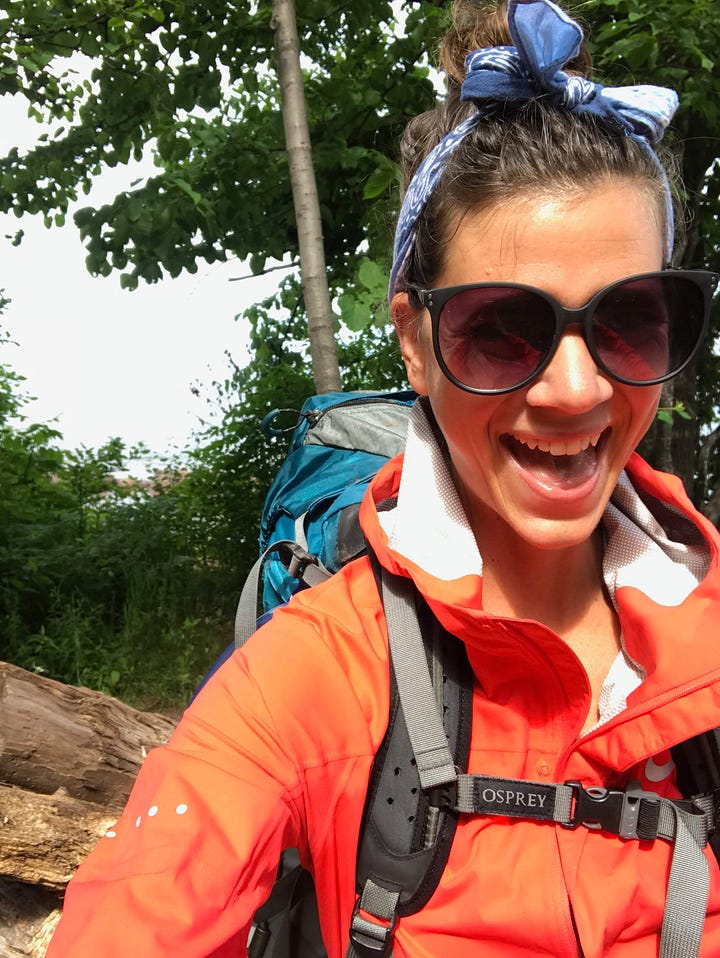
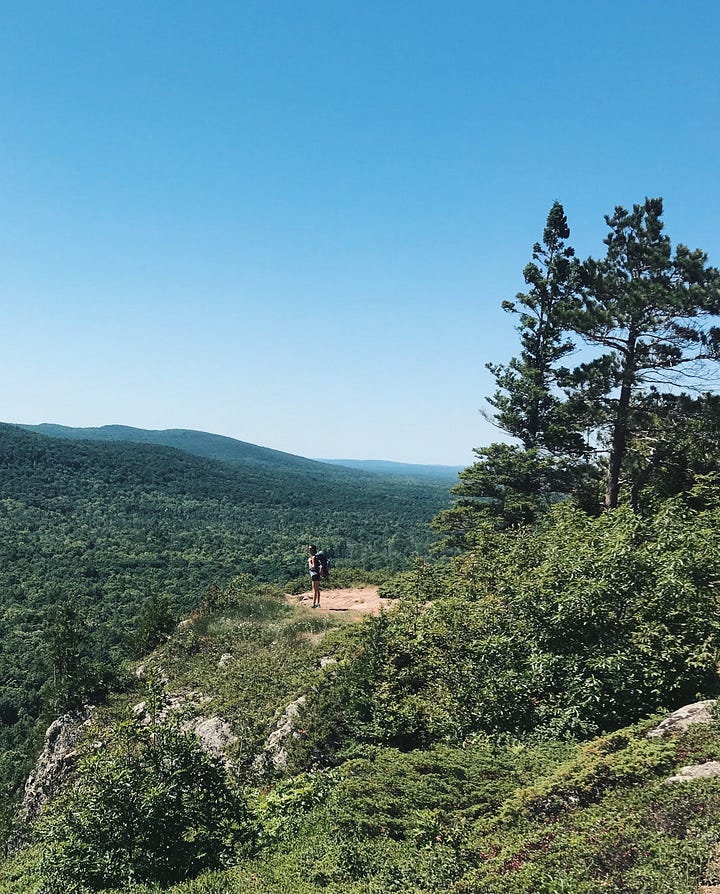
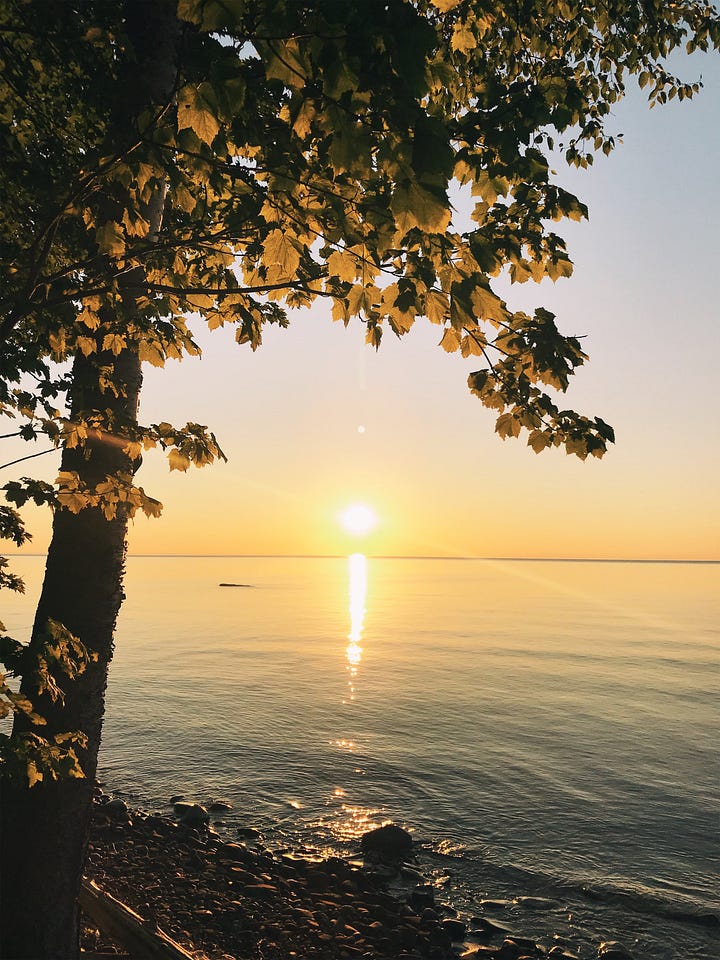
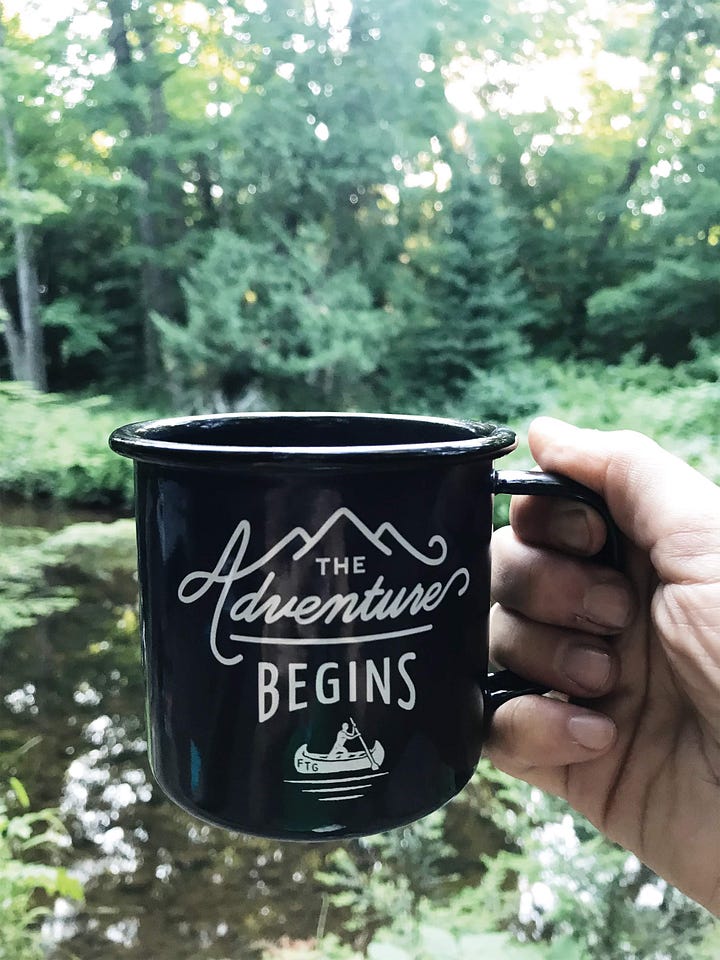


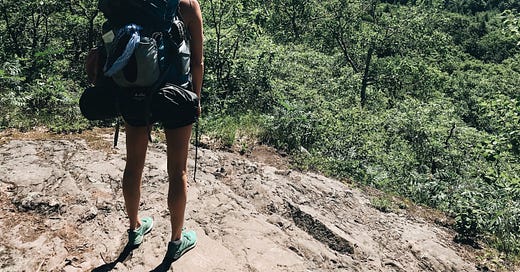



Dana,
Right out of the gate; “I’m fine (& other lies)” is such a freaking brilliant title!
I’m so inspired by your thoughts and writing…. I feel so much resonance with the concepts of your weighted scramble over the rocks. When you mentioned yesterday, the concept of the sac of grief, it stayed with me all day and I even illustrated it in my own journal.
The way I see it is that the sac or backpack is invisible to almost everyone else, except ourselves, and others who carry the same weight. And it’s so important to be seen. When they die, we lose that mirror of ourselves, that reflection of who we are and how they saw us.
When Rob died I carried a rant inside me at the fashion industry that had hijacked black clothing and a society that had stopped the tradition of wearing black for morning. Where is my black dress that says, for all to see, “I’m not ok!! My love has died!!”??
Thank you for your words so that we might see a reflection of ourselves in them.
These words so aptly describe early grief, slogging through mud, the physical pain, exhaustion. Your writings are so accurate, soul bearing and poignant. Thank you for putting words to what I felt and continue to feel. <3